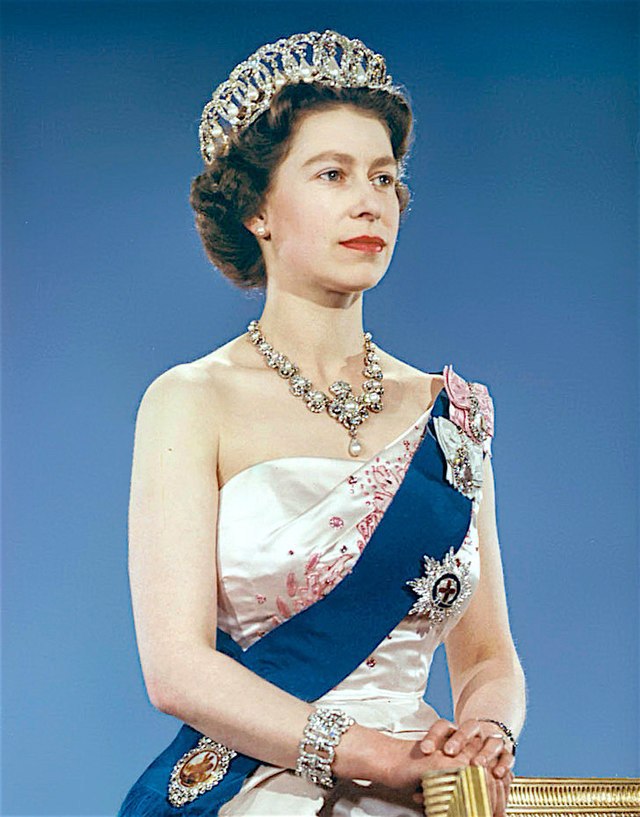As the echoes of colonialism find their roots in today’s Western-oriented globalization, the recent rise of the BRICS, most notably China, has forced this power dynamic out of its usual narrative. As peripheral countries continue to have advancements in GDP, healthcare and overall quality of life, while the United States, the United Kingdom and other Western countries face persistent problems of poverty, national debt and political divisions, the hegemony of the West seems to be called into question. Are Western powers on a downturn, and what does the death of Queen Elizabeth mean in this equation?
At the beginning of her reign in 1952, Queen Elizabeth II was the head of state of 56 countries, making up more than ¼ of the world’s population. By the end of her reign, only 15 countries remained under UK leadership — with Barbados gaining independence as recently as 2022.
As the head of the Commonwealth, the Queen represented what was once the British Empire, established in the age of imperialism, using Social Darwinism and “the white man’s burden” as a means for justification. The United Kingdom, and other European powers, conquered much of the world using brutal tactics, inhumane methods and exploitative economic policies. The West stripped countries in Asia, Africa and the Caribbean of their raw materials and human rights. This created an economic system in which colonized countries were forced to trade unevenly with Western powers, as Western governments reaped the profits.
While many around the world today condemn this behavior, the exploitation of these nations continues to persist. The wealth garnered during the imperialist era has remained concentrated in the Western powers, and the political influence they hold has remained ever present. Their power is most relevantly demonstrated through their permanent membership of the UN Security Council — particularly the United States, the United Kingdom and France. Economically, the Western world continues to exploit the periphery for raw materials, including coffee, precious metals and petroleum, produced through inhumane means in favor of Western demand, reinforcing the power dynamics present during imperialism.
However, the tides may be changing in favor of the periphery, especially with the death of the late Queen. The rise of the BRICS, Brazil, Russia, India, China and South Africa in recent years puts this current narrative into question. While China has invested heavily in infrastructure, it has become today the giant in manufactured goods and holds a significant economic advantage compared to the other BRICS. India has emerged as a key provider of services, while Brazil and Russia have become major global exporters of raw materials. South Africa’s ability to diversify its economy has allowed it to bounce back more effectively from economic downturns.
In addition to changes in economic conditions, these countries have also started cooperating with one another forming the G20, an intergovernmental organization made up of the world’s twenty largest economies. At their 2014 summit, the creation of the New Development Bank NDP was announced. This Shanghai-based bank will help fund infrastructure and sustainable development projects, as well as help other emerging countries. The five members have agreed to put down an initial US $2 billion each with a further US $40 billion guarantee. This would pose a significant opposition to Western-dominated international institutions such as the World Bank and World Trade Organization. Similarly, China and Russia’s roles on the UN Security Council also pose a major threat to Western-dominated spaces, given the immense influence over world affairs these positions hold.
However, the Western hegemony is not governed purely by hard powers alone. Much of the Western power lies within its position as a role model, that developing countries should base their economic and democratic pursuits on. This occurred during the imperial era and remains a significant factor in world development. The cultural influence the West has globally — often as a source of international aid — is beginning to diminish; this has resulted in numerous countries progressing independently of Western nations.
As former French Representative to the UN and Ambassador to the United States, Jean-David Levitte accurately noted in his 2019 speech before the Academy of Moral and Political Science in France, “emerging countries say yes to modernization. They say yes to globalization of the economy. But they say no to the Westernization of their societies. They refuse to adopt the norms and values that for four centuries formed the basis of the Western world order. They want to return to national values rooted in their collective memory.”
Countries in the periphery no longer want to be like the West or adhere to its hegemony. With the death of the late Queen and the decline in powers the Crown can exercise, Britain has reached the end of an era in which its paternalistic empire has come to a close, and Western countries are faced with the challenges of a new world order.







